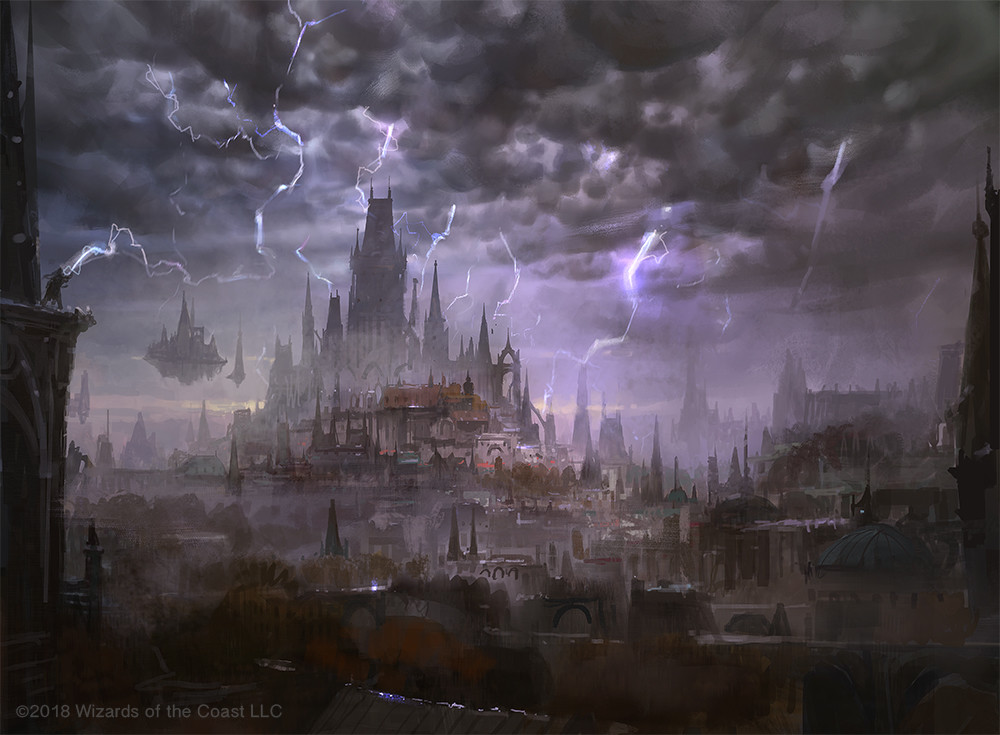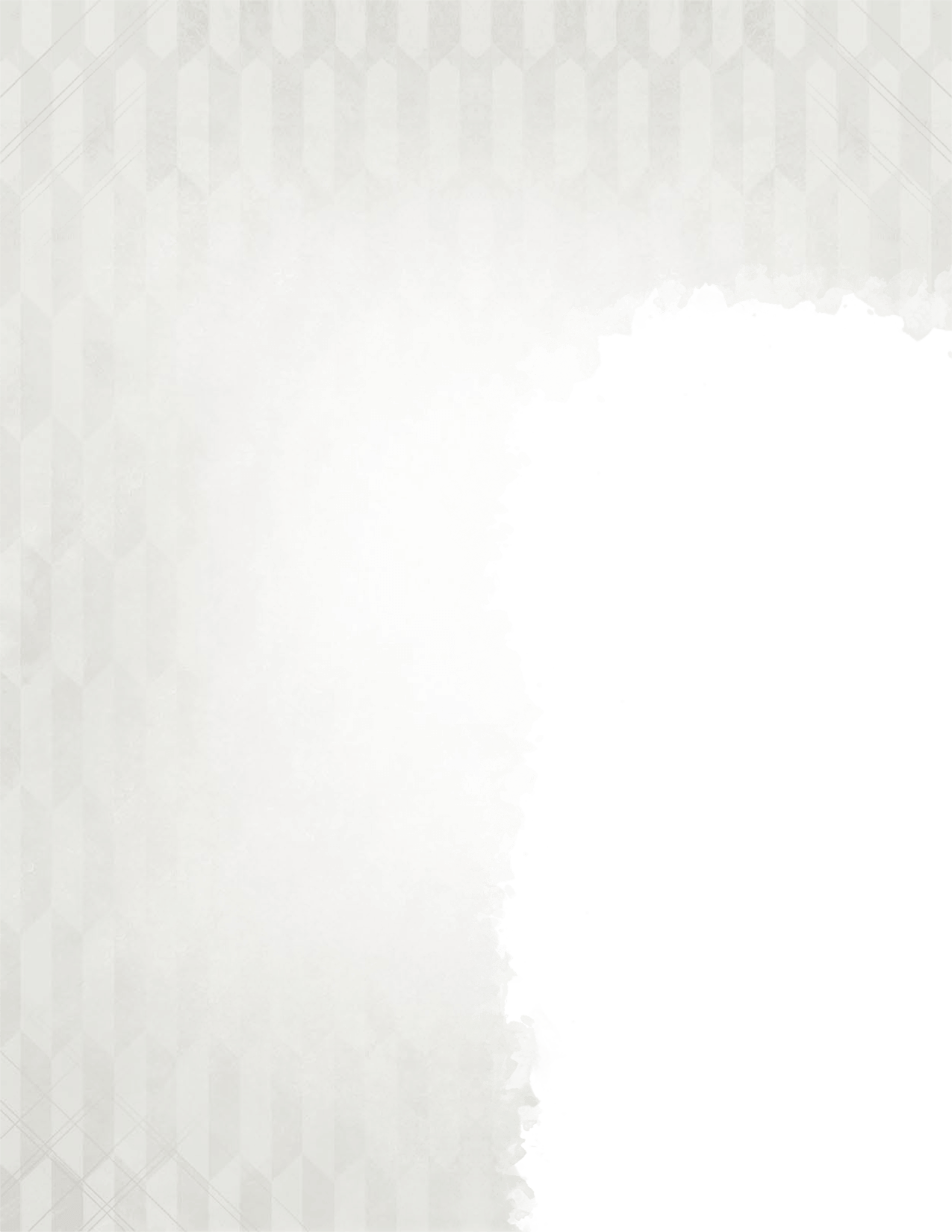
Herbalist
A slender dragonborn bends over the stone table supporting a farmers still form, her clothing spattered with blood as she struggles to save the leg that was crushed beneath his cart.
His hands moving in a blur bandage and salve the halfling crouches amid the din of battle, leathers muddied and his supplies running low. The soldiers' breath evens out as the gash in his throat closes up, and watches his halfling healer dart across the battlefield to the next casualty.
Crumbling the final herbs into a tincture bubbling over her campfire, an elf woman prepares for the night ahead. Savior or saboteur, the distinction depends only on the application of her knowledge, and to whom.
Not every community is blessed with a divine healer, but Herbalists can be found wherever there is a need. These men and women are revered in their communities as healers and masters of natural lore. With a deepened understanding of the body an herbalist can quickly save a life, but they can just as easily take one.
Revered Healers
Masters of natural lore, Herbalists are healers combining the bounty of the earth with years of intensive study and experimentation. Equally at home in the wilds as in an infirmary, Herbalists can be found among many walks of life, and with widely varied callings.
It is common for journeyman healers to take up adventuring upon completion of their apprenticeships, and are often found practicing their craft on the citizenry of the towns and cities they pass through. When plague and strife threaten the common folk, Herbalists can easily be found in its midst, searching for a cure with steel and salve.
Seekers of Unknown Lore
All Herbalists are trained in the Herb Lore of their profession, a powerful set of skills developed over centuries of experimentation and the study of Druidic magic. This understanding allows a Herbalist to combine mundane ingredients into powerful potions and poultices, resulting in miraculous effects on the world around them.
It is the drive for new and novel lore that sends many adventuring Herbalists to the edge of the civilized world. Undiscovered plant life, ancient surgical techniques, and long-lost medical journals would all tempt a journeyman away from the safety of the city. Even monsters are a trove of ingredients and information for those willing and able to bring them down.
Creating a Herbalist
As you create your Herbalist, consider where and how your character obtained their training. Did you apprentice to the old sage on the outskirts of the village? Did you leave your apprenticeship, or did your master die of disease--one you've vowed to find a cure for? Or perhaps you learned your skills at the University, trained in anatomy and potion making with a class of your peers. You may have even been affiliated with a druidic circle, training in the natural arts and wilderness lore.
Why did your character take up adventuring? Were there too many Herbalists in the city already? Are you in search of a cure for a mysterious disease ravaging the countryside? Maybe you're hunting for the heart of some exotic monster to use in a new concoction. Are you out to make your fortune with the Guild, practicing your craft on accident prone adventurers?



Quick Build
You can make an Herbalist quickly by following these suggestions. First, put your highest ability score in Wisdom, followed by Constitution or Dexterity. Second, choose from the Guild Artisan, Hermit, or Sage backgrounds.
Class Features
As an Herbalist, you gain the following class features.
Hit Points
Hit Die: 1d8 per Herbalist level
Hit Points at 1st Level: 8 + your Constitution modifier
Hit Points at Higher Levels: 1d8 (or 5) + your Constitution modifier per physiker level after 1st


Herbalist
| Level | Proficiency Bonus | Features | Recipes Known | Recipe Uses | Cantrips Known | 1st | 2nd | 3rd | 4th | 5th |
|---|---|---|---|---|---|---|---|---|---|---|
| 1st | +2 | Guided Growth, Spellcasting | ─ | ─ | 3 | 2 | — | — | — | — |
| 2nd | +2 | Medicines and Maladies, Recipe Versatility | 2 | 4 | 3 | 2 | — | — | — | — |
| 3rd | +2 | Herbalist Specialization, Health Potion Savant | 2 | 4 | 3 | 3 | — | — | — | — |
| 4th | +2 | Ability Score Improvement | 2 | 5 | 4 | 3 | — | — | — | — |
| 5th | +3 | Herbalist Specialization Feature | 2 | 5 | 4 | 4 | 2 | — | — | — |
| 6th | +3 | One with the Wild | 3 | 6 | 4 | 4 | 2 | — | — | — |
| 7th | +3 | Fortifying Herbs | 3 | 6 | 4 | 4 | 3 | — | — | — |
| 8th | +3 | Ability Score Improvement | 3 | 7 | 4 | 4 | 3 | — | — | — |
| 9th | +4 | Herbalist Specialization Feature | 3 | 7 | 4 | 4 | 3 | 2 | — | — |
| 10th | +4 | Expedited Brewing | 4 | 8 | 5 | 4 | 3 | 2 | — | — |
| 11th | +4 | Bottled Magic | 4 | 8 | 5 | 4 | 3 | 3 | — | — |
| 12th | +4 | Ability Score Improvement | 4 | 9 | 5 | 4 | 3 | 3 | — | — |
| 13th | +5 | ─ | 4 | 9 | 5 | 4 | 3 | 3 | 1 | — |
| 14th | +5 | Potent Mixtures | 5 | 10 | 5 | 4 | 3 | 3 | 1 | — |
| 15th | +5 | Herbalist Specialization Feature | 5 | 10 | 5 | 4 | 3 | 3 | 2 | — |
| 16th | +5 | Ability Score Improvement | 5 | 11 | 5 | 4 | 3 | 3 | 2 | — |
| 17th | +6 | ─ | 5 | 11 | 5 | 4 | 3 | 3 | 3 | 1 |
| 18th | +6 | Quick Fix | 6 | 12 | 5 | 4 | 3 | 3 | 3 | 1 |
| 19th | +6 | Ability Score Improvement | 6 | 12 | 5 | 4 | 3 | 3 | 3 | 2 |
| 20th | +6 | Calamitous Concoction | 6 | 12 | 5 | 4 | 3 | 3 | 3 | 2 |
Proficiencies
Armor: Light Armor, Medium Armor
Weapons: Simple weapons, Hand Crossbows
Tools: Alchemist's supplies, Herbalism Kit
Saving Throws: Dexterity, Wisdom
Skills: Choose 3 from Arcana, History, Insight, Medicine, Nature, Perception, Stealth, Survival
Equipment
You start with the following equipment, in addition to the equipment provided by your background:
- Any two simple weapons
- A hand crossbow and 20 bolts
- (a) Alchemist's Supplies or (b) Herbalism kit
- (a) Leather armor or (b) Chain Shirt
- (a) scholar's pack or (b) explorer's pack
If you forgo this starting equipment, as well as the items provided by your background, you start with 4d4 x 10 gp to buy your equipment.
Druidic
You know Druidic, the secret language of druids. You can speak the language and use it to leave hidden messages. You and others who know this language automatically spot such a message. Others spot the message's presence with a successful DC 15 Wisdom (Perception) check but can't decipher it without magic.
Guided Growth
At 1st level, you learn how to encourage magical growth in the natural world around you. To use this ability you must have an Herbalism Kit or Alchemist's Supplies on your person. You then scatter a mixture of herbs or alchemical compounds as an action on a point within 15 feet, causing one of the following magical effects:
- All vegetation in a 5 foot radius centered on that point becomes thick and overgrown. A creature moving through the area must spend 3 feet of movement for every 1 foot it moves. This effect lasts for 10 minutes.
- You encourage rot to quickly grow in a wooden object within range of medium size or smaller. The integrity of the object targeted by this effect is significantly reduced. This effect is permanent.
- You cause foliage to flourish and grow in a 5 foot cube at a point of your choosing within range. This area is heavily obscured. This effect lasts for 10 minutes before withering.
- You cause 5 small pieces of nourishing fruit to grow from a living plant within range. A creature can use its action to eat one piece of fruit or feed one piece of fruit to an unconscious creature. Eating a piece of this fruit restores 1 hit point. The fruit loses its potency if not eaten within 12 hours of using this ability.
Spellcasting
You have studied Herb Lore and how to combine it with the divine essence of Druidic magic. As a result, you have gained the ability to cast spells. To observers, you don't appear to be casting spells in a conventional way; you look as if you're producing wonders from mundane plants or exotic tinctures.
Tools Required
You produce your Herbalist spell effects through your tools. You must have a spellcasting focus---specifically alchemist's supplies or an herbalism kit---in hand when you cast any spell with this spellcasting feature. You must be proficient with the tool to use it in this way. See chapter 5, "Equipment," in the Player's Handbook for descriptions of these tools.
After you gain the Topical Treatments feature at 2nd level, you can also use any one of your treatments as a spellcasting focus.
The Magic of Herb Lore
As an Herbalist, you use natural materials when you cast your spells. When describing your spellcasting, think about how what you're using creates the spell effect. If you cast Cure Wounds using an Herbalism Kit, you might be quickly creating a poultice. If you cast it using Alchemist's Supplies, you might be creating a tincture to pour over the wound. The effect of the spell is the same as for a spellcaster of any other class, but your method of spellcasting is special.
The same principle applies when you prepare your spells. As an herbalist, you don't study a spellbook or pray to prepare your spells. Instead you work with your tools and create the specialized items you'll use to produce your effects. If you replace cure wounds with spike growth, you might be altering the tincture you use to heal—perhaps changing the composition so that it encourages the growth of spikes and thorns, instead of skin and bone.
Such details don't limit you in any way or provide you with any benefit beyond the spell's effects. You don't have to justify how you're using tools to cast a spell. But describing your spellcasting creatively is a fun way to distinguish yourself from other spellcasters.
Cantrips (0 level spells)
At 1st level, you know 3 cantrips of your choice from the Herbalist spell list. You can find this list at the end of the class's description. At higher levels, you learn additional herbalist cantrips of your choice, as shown in the Cantrips Known column of the Herbalist table.
When you gain a level in this class, you can replace one of the herbalist cantrips you know with another cantrip from the herbalist spell list.
Preparing and Casting Spells
The Herbalist table shows how many spell slots you have to cast your herbalist spells. To cast one of your herbalist spells of 1st level or higher, you must expend a slot of the spell's level or higher. You regain all expended spell slots when you finish a long rest.
You prepare the list of herbalist spells that are available for you to cast, choosing from the herbalist spell list. When you do so, choose a number of herbalist spells equal to your Wisdom modifier + half your herbalist level, rounded down (minimum of one spell). The spells must be of a level for which you have spell slots.
For example, if you are a 5th-level herbalist, you have four 1st-level and two 2nd-level spell slots. With an Wisdom of 14, your list of prepared spells can include four spells of 1st or 2nd level, in any combination. If you prepare the 1st-level spell cure wounds, you can cast it using a 1st-level or a 2nd-level slot. Casting the spell doesn't remove it from your list of prepared spells.
You can change your list of prepared spells when you finish a long rest. Preparing a new list of herbalist spells requires time spent altering your spellcasting focuses: at least 1 minute per spell level for each spell on your list.
Spellcasting Ability
Wisdom is your spellcasting ability for your herbalist spells; your understanding of the natural world allows you to obtain maximum effect from these spells. You use your Wisdom whenever an herbalist spell refers to your spellcasting ability. In addition, you use your Wisdom modifier when setting the saving throw DC for an herbalist spell you cast and when making an attack roll with one.
Spell Save DC
Spell attack modifier
Ritual Casting
You can cast an herbalist spell as a ritual if that spell has the ritual tag and you have the spell prepared.
Medicines and Maladies
At 2nd level, you have discovered how to combine certain natural ingredients together into mixtures which can be applied to creatures within 5 feet of you. The mixtures you create with this feature are considered prototypes of various tinctures and potions. Your mixtures do not need to be potions or tinctures specifically in order to be effective. They could be salves, sprays, creams, or even early hypodermics (at your DM's discretion). These mixtures can only be used by an herbalist unless they are bottled with the Potions Master's Custom Bottling ability.
The Recipe Uses column show how many times an Herbalist can use their mixtures between every long rest. For example: a 7th level Herbalist can use their mixtures 6 times per long rest, in any combination of the 3 recipes they know.
Recipes Known
When you gain this feature, pick two recipes to learn, choosing from the "Miracles and Maladies" section at the end of this class's description. You learn additional recipes of your choice when you reach certain levels in this class, as shown in the Recipes Known column of the Herbalist table.
Herbalist Recipes
Herbalists have discovered numerous magical recipes, with these mixtures effecting astounding change on the creatures around them. To many, herbalists seem like wonderworkers, performing miracles with little more than a green thumb.
The description of each of the following recipes the effects caused when applying the resulting mixture to a creature. Some mixtures specify a minimum herbalist level. You can't learn such an mixture until you are at least that level.
Whenever you gain a level in this class, you can replace a number of the herbalist recipes you know equal to half your proficiency bonus (rounded down) with new ones.
Creating a Recipe
Over the course of a long rest you perform all the activities necessary to create your potent mixtures. Such activities may include grinding and simmering herbs, sourcing additional alchemicals, and exploring the surrounding area for ingredients.
Your mixture remains potent indefinitely, but when you die, the potency fades after a number of days have passed equal to your Wisdom modifier (minimum of 1 day). The potency also fades if you give up your knowledge of the recipe for another one.
You can create more than one mixture over the course of a long rest, the maximum number of mixtures appears in the Recipes Known column of the Herbalist Table. If you try to exceed the maximum number of recipes, your oldest mixture immediately loses its potency, and then the new mixture becomes magically potent.

Herbalist Specialization
At 3rd level, you choose the type of specialist you are: Field Medic, Potion Master, or Medicine Man, each of which is detailed at the end of the class's description. Your choice grants you features at 5th level and again at 9th and 15th level.
Health Potion Savant
At 3rd level, you have become an expert in the creation of potions of healing. The gold and time you must spend to create a potion of healing is halved.
Ability Score Improvement
When you reach 4th level, and again at 8th, 12th, 16th,and 19th level, you can increase one ability score of your choice by 2, or you can increase two ability scores of your choice by 1. As normal, you can’t increase an ability score above 20 using this feature
If your DM allows the use of feats, you may instead take a feat.
Proficiency Versatility
(enhances Ability Score Improvement)
When you gain the Ability Score Improvement feature from your class, you can also replace one of your skill proficiencies with a skill proficiency offered by your class at 1st level (the proficiency you replace needn't be from the class).
This change represents one of your skills atrophying as you focus on a different skill. You may do this again at levels 8, 12, 16, and 19.
Herbalist Specialization Feature
At 5th level, you gain a feature granted by your Herbalist Specialist choice.
One with the Wild
At 6th level, you gain proficiency in either the Nature or Survival skills if you don't already have it. Your proficiency bonus is doubled for any ability check you make that uses the chosen proficiency. Additionally moving through nonmagical Difficult Terrain costs you no extra Movement. You can also pass through nonmagical Plants without taking damage from them if they have thorns, spines, or a similar hazard.
Fortifying Herbs
Starting at 7th level, you gain the ability to fortify your allies against the rigors of adventuring. At the end of a short or long rest, up to six creatures of your choice within 30 feet gain temporary hit points equal to your herbalist level plus your Wisdom modifier. A creature can't gain temporary hit points in this way again until they finish a short or long rest.
Herbalist Specialization Feature
At 9th level, you gain a feature granted by your Artificer Specialist choice.
Expedited Brewing
When you reach 10th level, you have become intimately familiar with the process of brewing potions. When you brew a potion with a rarity of common, uncommon, or rare, it takes you a half of the normal time, and it costs you one quarter as much of the usual gold.


Bottled Magic
At 11th level, you learn how to store a spell in an empty potion bottle. Whenever you finish a long rest, you can touch an empty potion bottle and use your spellcasting focus to store a spell in it.
The spell can be a 1st- or 2nd-level spell from the herbalist spell list that requires 1 action to cast (you needn't have it prepared).
While holding the object, a creature can take an action to produce the spell's effect from it, using your spellcasting ability modifier. If the spell requires concentration, the creature must concentrate. The bottle holds a number of uses equal to twice your Wisdom modifier (minimum of twice) or until you use this feature again to store a spell in another bottle.
Potent Mixtures
Starting at 14th level, you have acquired the ability to briefly enhance the effect of your potions. As a bonus action on your turn, you enhance a single use of one of your mixtures. This enhancement lasts until the start of your next turn and has one of the following effects:
- If the mixture involves a roll that restores hit points or deals damage, you gain a bonus to the roll equal to you Wisdom Modifier.
- If the mixture forces a creature to make a saving throw, the creature makes that saving throw at disadvantage.
- If the mixture has a specified duration, that duration is increased by 1 minute.
Herbalist Specialization Feature
At 15th level, you gain a feature granted by your Herbalist Specialist choice.
Quick Fix
Starting at 18th level, you get an additional action on each of your turns. That action can be used only to apply a mixture to a creature within range, Hide, or Use an Object action.


Calamitous Concoction
At 20th level, you have discovered the most volatile mix of magic and herb lore known to your profession. Once per long rest you can cast Storm of Vengeance without expending a spell slot, without preparing the spell, and without material components, provided you use your herbalism kit as the spellcasting focus. Once you cast the spell with this feature, you can't cast it again until you finish a long rest. The spell does not require concentration when used with this feature, but you may not end the spell early.
Herbalist Specializations
Field Medic
Many herbalists can be found plying their trade in war torn regions, or as part of a nations military. These Field Medics are trained to save lives in the chaos of battle by healing the wounded, or laying their attackers low.
Field Medic Spells
Starting at 3rd level, you always have certain spells prepared after you reach particular levels in this class, as shown in the table below. These spells count as herbalist spells for you, but they don't count against the number of herbalist spells you prepare.
| Herbalist Level | Spell |
|---|---|
| 3 | Absorb elements, Heroism |
| 5 | Enlarge/Reduce, Warding Wind |
| 9 | Aura of Vitality, Feign Death |
| 13 | Death Ward, Stoneskin |
| 17 | Destructive Wave, Raise Dead |
Combat Training
When you choose this specialization at 3rd level, you gain the following features:
- proficiency with martial weapons and shields.
- you have a pool of d6s that you can use to heal wounds. The number of dice in this pool is equal to half your Herbalist level, rounded up. As a bonus action, you can heal one creature within 5 feet of you, spending dice from the pool. The maximum number of dice you can spend at once equals your wisdom modifier (minimum of one die). Roll the dice you spend, add them together, and restore a number of hit points equal to the total. Your pool regains all expended dice when you finish a long rest.
Extra Attack
Starting at 5th level, you can attack twice, rather than once, whenever you take the Attack action on your turn.


Battlefield Medicine
At 9th level you have become familiar with the flow of battle, and how best to apply your mixtures while in its midst:
- When a friendly creature within 60 feet of you is reduced to 0 hit points you may use your reaction to move up to your movement speed towards them. If you end that movement within 5 feet of the downed creature you may use your Combat Training feature to heal them. Once you have used this feature, you can't use it again until you finish a short or long rest.
Forceful Application
By 15th level, you've learned that sometimes the best way to apply your mixtures is with the edge of a blade:
- You may use a Bonus Action on your turn to apply a single use of one of your mixtures to your weapon, before making a melee weapon attack against a creature within 5 feet of you. This application lasts until the start of your next turn. You can apply a mixture to a creature using this method only once on your turn.
- At Herbalist level 20 you can apply a mixture to a creature using this method with both of your attacks on your turn.
Potions Master
Some herbalists choose to specialize in the creation of potions from the mixtures they have discovered. The Potions Master can dole out bottled miracles to those around them, or hurls their creations across the battlefield.



Potions Master Spells
Starting at 3rd level, you always have certain spells prepared after you reach particular levels in this class, as shown in the table below. These spells count as herbalist spells for you, but they don't count against the number of herbalist spells you prepare.
| Herbalist Level | Spell |
|---|---|
| 3 | Color Spray, Grease |
| 5 | Dragon's Breath, Pass Without Trace |
| 9 | Catnap, Stinking Cloud |
| 13 | Elemental Bane, Vitriolic Sphere |
| 17 | Dominate Person, Synaptic Static |
Custom Bottling
Starting when you choose this specialization at 3rd level, you discover how to create specialized bottles for your mixtures. These bottles have the following properties:
- Your bottled mixtures can be thrown by making ranged attack against a creature within 20 feet, contested by that creatures AC. If the target creature is willing, the potion hits automatically.
- You bottled mixtures remain potent even while away from your person. You can give one bottled use of a mixture to another creature. A creature can take an action to produce the mixture's effect from the bottle, using your spellcasting ability modifier or spell save DC. If the spell requires concentration, the creature must concentrate. The mixture remains potent until your next long rest.
Ever-ready Potion
At 5th level you gain one use of a recipe from the Herbalist Recipes list that must be in a bottle from your Custom Bottling ability. This use does not have to be from one of your Known Recipes, and does not count against your number of Recipe Uses as shown in the Herbalist table. The chosen recipe must be one for which you meet the level requirement. Once you use this ability you can not use it again until you finish a short or long rest.
Mimic the Masters
By 9th level you have become so familiar with the art of potion making that you are able to make a copy of any potion in your possession. The time and money required to copy a potion is determined by your DM, but is still subject to your Health Potion Savant or Expedited Brewing features as applicable. A potion may only be copied once. This feature does not apply to any potions created with the Custom Bottling feature.
Thin-walled vessels
at 15th level you have learned how to further refine the design of your custom bottles, making them smaller and more easily shattered:
- When you throw one of your potions at a target it can now affect creatures in a 5 foot radius sphere centered on the point of impact.
- This compact design allows you to hide 4 Recipe Uses on your person that are exceedingly difficult to find. A creature must succeed on an Intelligence (Investigation) check of your person against your spell save DC. On a success the creature finds 1d4 of your hidden bottles.
Witch Doctor
True herbalists know that the difference between medicine and poison is in the dose. Witch Doctors specialize in the knowledge of bodily ailments; curing those of their allies, and inflicting them upon their enemies.
Witch Doctor Spells
Starting at 3rd level, you always have certain spells prepared after you reach particular levels in this class, as shown in the table below. These spells count as herbalist spells for you, but they don't count against the number of herbalist spells you prepare.
| Herbalist Level | Spell |
|---|---|
| 3 | Inflict Wounds, Puppet |
| 5 | Healing Spirit, Ray of Enfeeblement |
| 9 | Life Transference, Speak with Dead |
| 13 | Confusion, Guardian of Nature |
| 17 | Contagion, Wrath of Nature |
Dipped Darts
When you choose this specialization at 3rd level, you gain proficiency with the poisoner's kit and blowgun. This blowgun allows you to apply one of your Recipe uses to a blow dart as a Bonus Action on your turn. When you hit a creature with a dipped dart the creature takes 1 damage as normal, and then the mixture applies to it. If you target a willing creature within 25 feet the dart hits automatically. When targeting a creature outside of 25 feet you must roll at disadvantage against their AC.
The Right Dose
At 5th level, you develop preternatural control over your magic and mixtures, enhancing the healing and damage you effect with them. Whenever you cast a spell using your herbalism kit or alchemists supplies as the spellcasting focus, you gain a bonus to one roll of the spell. That roll must restore hit points or deal acid, poison, or necrotic damage, and the bonus equals your Wisdom modifier (minimum of +1). This feature also applies to any of your mixtures that restore hit points or deal poison damage.
Cleansing Herbs
Starting at 9th level, you have discovered cleansing and restorative ingredients to add to your mixtures:
- When you apply a mixture to a friendly creature, that creature regains hit points equal to 1d4 + your Wisdom Modifier (minimum of 1)
- You can cast lesser restoration without expending a spell slot and without preparing the spell, provided you use an herbalism kit or alchemist's supplies as the spellcasting focus. You can do so a number of times equal to your Wisdom modifier (minimum of once), and you regain all expended uses when you finish a long rest.
Deathspeaker
By 15th level you have mastered the fine line between life and death, the end holds little fear for you:
- You gain resistance to poison damage, and are immune to the poisoned condition.
- You have advantage on death saving throws.
- You can cast cloudkill and heal without expending a spell slot, without preparing the spell, and without material components, provided you use an herbalism kit or alchemist's supplies as the spellcasting focus. Once you cast either spell with this feature, you can't cast that spell with it again until you finish a long rest.


Herbalist Spell List
Cantrips (0 Level)
- Acid Splash
- Create Bonfire
- Druidcraft
- Mold Earth
- Poison Spray
- Primal Savagery
- Produce Flame
- Resistance
- Shillelagh
- Spare the Dying
- Thorn Whip
1st Level
- Absorb Elements
- Animal Friendship
- Charm Person
- Cure Wounds
- Detect Poison and Disease
- Earth Tremor
- Entangle
- Faerie Fire
- False Life
- Fog Cloud
- Goodberry
- Inflict Wounds
- Longstrider
- Jump
- Purify Food and Drink
- Speak with Animals
- Wild Cunning
2nd Level
- Aid
- Barkskin
- Blindness/Deafness
- Calm Emotions
- Continual Flame
- Dust Devil
- Earthbind
- Enhance Ability
- Enlarge/Reduce
- Flame Blade
- Flaming Sphere
- Gust of Wind
- Hold Person
- Lesser Restoration
- Locate Animals or Plants
- Pass Without Trace
- Protection from Poison
- Spike Growth
3rd Level
- Bestow Curse
- Call Lightning
- Catnap
- Conjure Animals
- Daylight
- Erupting Earth
- Feign Death
- Plant Growth
- Revivify
- Speak to Plants
- Stinking Cloud
- Vampiric Touch
- Water Breathing
4th Level
- Blight
- Charm Monster
- Confusion
- Dominate Beast
- Freedom of Movement
- Giant Insect
- Hallucinatory Terrain
- Polymorph
- Stone Shape
- Stoneskin
- Wall of Fire
5th Level
- Antilife Shell
- Awaken
- Contagion
- Geas
- Greater Restoration
- Hallow
- Hold Monster
- Reincarnate
- Transmute Rock
- Tree Stride


Miracles and Maladies
Through experimentation, oral tradition, and extensive study you have learned of the following mixtures:
Vigor
You apply a mixture of herbs to revitalize a target creature. The target creature regains hitpoints equal to 1d6 plus your Wisdom modifier. This mixture's hit points restored increases by 2d6 when you reach 5th level (3d6), 11th level (5d6), and 17th level (7d6).
Fallow
You combine wolfsbane and water hemlock into a viciously poisonous mixture. The target creature takes poison damage equal to 1d6 plus your Wisdom modifier. This mixture's damage increases by 2d6 when you reach 5th level (3d6), 11th level (5d6), and 17th level (7d6).
Acuity
This combination of stimulants helps to sharpen the mind of any creature it's applied to. The mixture grants the following effects for one minute:
- Target creature gains advantage on concentration checks.
- When making a spell attack target creature adds your Wisdom modifier to their spell attack.
Hawkeye
Having identified the most potent visual enhancing herbs, you create a mixture that gives target creature 60 feet of darkvision for one hour. If the creature already has darkvision it gains an additional 30 feet. As you gain additional Herbalist levels, this mixture gains the following enhancements:
- At 5th level, the potion lasts for 2 hours.
- At 11th level, the potion lasts for 4 hours.
- At 17th level, the potion lasts for 8 hours and grants Truesight instead of darkvision.
Dirtnap
You have learned the mild tranquilizing properties of many different herbs together into a potent soporific. When you apply this mixture to a creature they succeed a Constitution saving throw against your spell save DC or fall unconscious for 1 hour. On a successful save the creature cannot take reactions until the start of your next turn.
Blinding Bandit
This mixture targets the visual center of any creature it is applied to. When applied, target creature must succeed on a Constitution saving throw or become blinded for 1 minute. At the end of each of its turns, the target can make a Constitution saving throw. On a success, the spell ends.
Custom Mix - Requires Herbalist Level 5
After years of trial and error, you have developed your own signature combination of ingredients. Work with your DM to determine the effect of this recipe.
Wither - Requires Herbalist level 6
The poisonous properties of deadly nightshade have been modified into a strength sapping mixture. When you apply this mixture target creature deals half damage with strength based attacks for 1 minute, and has disadvantage on strength checks. At the end of each of the target’s turns, it can make a Constitution saving throw against the effect. On a success, the effect ends.
Quicksilver - Requires Herbalist level 6
The potent stimulating effects of your herbs have been enhanced to target a creatures nervous system, increasing speed and agility. Choose a willing creature within range. Until the effect ends, the target’s speed is doubled, it gains a +1 bonus to AC, it has advantage on Dexterity saving throws, and it can spend 5 feet of movement to automatically escape from non-magical restraints, such as manacles or a creature that has it grappled. This effect lasts for 1 minute.
Heartache - Requires Herbalist level 10
When you've achieved 10 levels in this class, you have learned how to target the delicate muscles in a creature's heart. When you apply this mixture to a creature, they must succeed on a Wisdom saving throw vs. your Spell Save DC or gain two levels of exhaustion. On a failed save a creature gains one level of exhaustion instead.


Thanks
For
Reading!
The inspiration for this homebrew came with the release of the new Artificer class. When reading through about a PC being able to use arcane magic through their tools, I wondered if that principle could be applied to the divine magic of nature.
I set out to create a class that was to the Druid what the Artificer is to the Wizard. The Herbalist was intended to have a pretty cohesive theme around the magic inherent in the natural world, and hope it came through.
This is my first attempt at homebrewing a new class and welcome any constructive feedback the community has to offer.
Art Credits
- Cover Art: Magic Potions by Cyril Van Der Haegen
- Creating an Herbalist: Cover to Pathfinder Player Companion: Potions and Poisons by Setiawan Fajareka Artist
- Herbalist Table Background: The Jungle Adventure by Li Shuxing
- Creating a Recipe: Gnome Alchemy by Earl Graey
- Expedited Brewing: Poison by Jeromesion21 Artist
- Calamitous Concoction': Thousand Year Storm by Dimitar Marinski
- Field Medic: Frontline Medic by Willian Murai
- Potions Master: Cover to Pathfinder Player Companion Alchemy Manual by Kerem Beyit
- Medicine Man: marctaro by chow_102
- Herbalist's Cottage: marctaro by chow_102
- Watercolor Stains: Xanathar's Guide To Everything Style Stains by FallenWyvern
- Miracles and Maladies: Candle Maker's Shop by Aleksandr Osmolovskiy